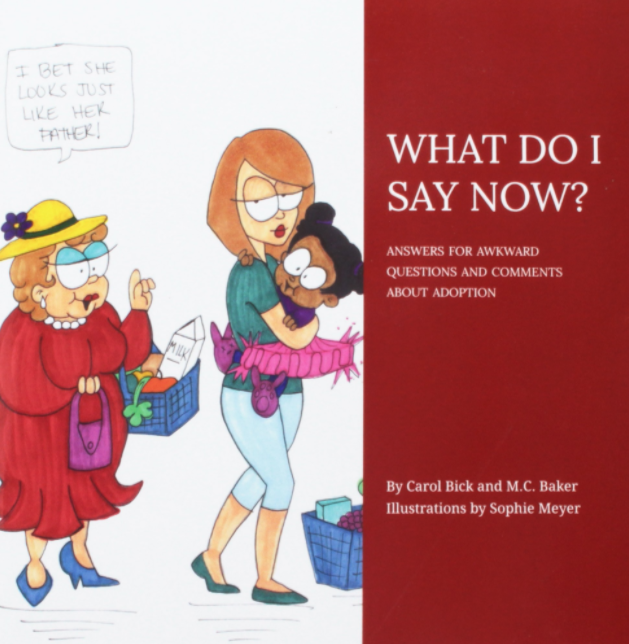People Say the Darndest Things!
/Being an adopted child or an adoptive parent can invite strange and unwelcome comments from strangers, as well as family and friends. Sometimes it is helpful to be ready with an easy answer, so that you, or your child, do not feel defensive or angry. Your child may be asked questions about her “real parents” or “real family”, especially if he is of different racial background or the adopted child of a same sex couple. It may be difficult to avoid the unwelcome comments and questions, but you can be a positive role model for your child and for adoption if you think about your response and reply calmly.
One insensitive and particularly galling question is “Why would you want someone else’s child?” It takes a lot of patience to smile and say, “Alex is my child and I love being his parent”. When others speak in terms of your child’s “real parent”, it is helpful to educate them to understand that your child had a birth family, or a first family and that you are her parent and forever family. A child might be asked who or where her “real family” is. It is helpful for her to know that while she had a first or birth family, you are her real and forever family. After a stranger nosily insisted that her daughter looked nothing like her, one adoptive mother smiled and said, “I know. Sara is so cute, I wish I looked more like her!”
A foster father once told me his foster son was confused about who his Daddy is. This Dad gently explained to his foster son that a Daddy is someone who makes him breakfast and dinner, and special treats, reads him books, plays with him and is always there, everyday, to hug and love him.
Gay Morrissey, LMSW, is a social worker in private practice and has been performing home study reports, in New York, for the past 25 years. Gay is also an adoptive mother of two adult daughters, Kate, 27, and Liz, 25, whom she and her husband adopted as infants. Gay explains, “Children figure out how to respond to questions about adoption in a way that is unique to their personalities. Kate to this day is more likely to ‘go to task’, and Liz is much more likely to ‘let things roll’”. Gay shared that she told her girls their adoption stories from the earliest of ages. As the girls grew older, Gay explained that some people, adults and children alike, ask questions about adoption simply out of curiosity and often out of ignorance. Gay counseled her girls, and numerous adoptive families, that we should practice what to say when asked a difficult question, but more importantly that we know how to talk about our family’s adoption story with each other. Of course, every chance she gets, Gay reminds her girls that she and her husband are lucky to have them as their daughters!
People are generally well meaning but can say hurtful things out of ignorance. I am told clients have actually been asked how much their child cost! It takes a very strong and patient person to calmly answer that one! Sometimes less is more and maybe, in such a situation, you can find the inner peace to suggest the questioner research different agencies and call a few adoption attorneys to get a sense of adoption expenses. Adoption is a wonderful avenue to becoming parents and while you may not have signed on to be an adoption advocate, our community and our children become stronger and better understood when we speak of adoption in a positive manner.











